Is Polymarket interfering in the Canadian federal election?
Commentary by Dan Fournier, published Monday, April 7, 2025 at 12:22 EDT.
Screen capture taken on 2025-04-06 at 11:12 am EDT of Polymarket’s ‘Next Prime Minister of Canada after the election?’ showing Mark Carney with a substantial lead at 72% versus Pierre Poilievre who sits at 29% chance of winning the current Canadian federal election.
Introduction
When it comes to federal elections, public perception generated by the gatekeeper media accounts for a lot; for, it [deceivingly] signals and sways the general public towards the “preferred” candidate. That is to say, it deceptively favours and promotes the candidate which the establishment seeks to place in power.
One of the primary ways in which the gatekeeper media – commonly referred to as the mainstream media – accomplishes this deception is through the use of polls.
Though very popular during election campaigns, polls in general are not very accurate or at the very least not representative, particularly due to their very small sampling sizes (relative to the total population), a lack of transparency regarding exactly who is sampled (their age, location, political affiliation, etc.), a lack of transparency regarding the questions used which may or may not contain bias, as well as the pollster’s own political biases and those who are funding them.
Such inaccuracy with regards to polls was quite evident during the 2016 U.S. Presidential election in which most polls indicated a clear win for candidate Hillary Clinton.
And while pollsters in the 2024 U.S. Presidential election weren’t necessarily more accurate, Polymarket proved more accurate. Roughly a month before Americans cast their votes Polymarket showed a spike in the odds Donald Trump would win the 2024 election, to 53.3%, with a corresponding decline in Kamala Harris's odds, to 46.1%.
What is Polymarket?
Polymarket is the world’s largest decentralised prediction market platform which enables its users to purchase a binary option (either a “Yes” or a “No”) on certain events – essentially creating a large betting market.
Users can buy and sell shares representing future event outcomes (e.g., "Will TikTok be banned in the U.S. this year?")
Events include the likes of whether the Fed will cut rates, who will win a particular college sports game, whether the U.S. will bomb Iran before a certain date, and so on.
Election betting also figures among events in Polymarket with the U.S. 2024 election being its biggest to date.
Various wagers can also be placed on Polymarket concerning other national elections.
Who founded Polymarket and who are its Funders?
While the outfit has several funders, two of significance include a $45 million Series B funding by Peter Thiel’s Founders Fund and a $25 million Series A investment led by General Catalyst.
Other investors include Ethereum’s co-founder Vitalik Buterin as well as ParaFi – whose founder, Ben Forman, was a previous member of the investment banking team at Rothschild & Co.
For those unfamiliar, Peter Thiel is is a billionaire member of the Bilderberg Steering Committee.
Akin to the the Trilateral Commission and the Council on Foreign Relations, Bilderberg is a group in which very powerful players such as tech entrepreneurs, politicians, and other power brokers hold secretive meeting to discuss and steer the direction of world events and policies – usually for the accumulation of power and control by the elite class.
It should also be noted that Trump’s vice-presidential pick, J.D. Vance was a protégé of Thiel and had worked at the tech billionaire's firm Mithril Capital, between 2016 and 2017.
Mithril is also associated with Palantir Technologies, a software company also founded by Thiel which focuses on mass surveillance and whose co-founder and CEO, Alex Karp, recently bragged about killing people.
Such a statement by Karp isn’t that surprising given the fact that Palantir entered into a strategic partnership with the Israeli Defense Ministry to supply AI systems in support of its war-related mission which ultimately included specific ‘kill lists’ of Palestinians in Gaza.
When asked about the matter, Thiel, who owns eight percent of Palantir which is currently valued at over U.S. $173 billion, struggled to justify and defend Israel’s use of the technology under the Lavender AI targeting system whose targets have included civilians, preferring to “defer [the matter entirely] to Israel.”
Finally, Shayne Coplan, a young tech entrepreneur from New York, is Polymarket’s founder.
Polymarket operating in a legal grey area
Polymarket was registered in New York in 2020 and was processing bets as early as January 2021.
Betting on elections is illegal in the U.S. under federal law.
As such, its operations need to be conducted in an offshore jurisdiction that is gambling-friendly for it to be legal. Panama is one such jurisdiction and under Polymarket’s Terms of Service, any disputes arising beyond the realm of arbitration are to be addressed under Panamanian law. Moreover, Panama is a crypto-friendly offshore jurisdiction, having set up its Panama Financial Crypto Commission (PFCC).
Last fall, Polymarket became the most-downloaded free news app from Apple, and processed bets of more than $U.S. 3 billion on the U.S. election alone.
Despite it being illegal to place bets on elections, no less than 25% of those who wagered on the 2024 U.S. elections on Polymarket were from the United States. Users can easily bypass Polymarket’s geolocation detection via the use of a Virtual Private Network (VPN).
While on-chain data (from the Polygon blockchain network on which Polymarket functions) does display the user names of those who place bets, their identities remain, for the most part, anonymous.
This makes it nearly impossible to determine who are placing bets on specific political candidates, and whether or not malicious foreign actors are doing so in order to sway the overall Polymarket percentage chances for a given event.
In January of 2022, Polymarket was forced to pay a $US 1.4 million civil penalty as part of a legal settlement with the Commodity Futures Trading Commission (CFTC).
To make matters worse, an investigation by Fortune indicated that blockchain data revealed that around a third or more of the bets on Polymarket are in fact “wash trades.”
A wash trade simply refers to how a market participant is clandestinely taking both sides of a trade.
“Doing so can manipulate markets by creating an artificial sense of trading volume or momentum in a given direction. This obviously has big implications concerning the integrity of Polymarket’s betting odds, and for the political process more generally. Polymarket declined to comment on the findings.”
In other words, market participants involved in wash trading on Polymarket (for an election event) can make it appear as though a certain candidate is more popular than the other(s) – an example of this will be given later with regards to the current Canadian federal election.
Moreover, the Fortune article provided additional evidence of such wrongdoing, stating [with emphasis added]:
“In separate investigations completed by the blockchain firms Chaos Labs and Inca Digital and shared exclusively with Fortune, analysts found that Polymarket activity exhibited signs of wash trading, a form of market manipulation where shares are bought and sold, often simultaneously and repeatedly, to create a false impression of volume and activity. Chaos Labs found that wash trading constituted around one-third of trading volume on Polymarket’s presidential market, while Inca Digital found that a “significant portion of the volume” on the market could be attributed to potential wash trading, according to its report.”
Needless to say, this has direct implications affecting public perception with regards to certain candidates.
Further complicating the dynamics is the fact that media outlets and social media influencers use Polymarket as a kind de facto polling instrument which distorts or misrepresents actual voter sentiment. Specific examples will be provided later.
By early August of 2024, five United States Senators and three House representatives called for a ban on betting activities linked to the upcoming 2024 presidential election. One of their concerns was expressed as follows [with emphasis added]:
“The group expressed concerns over the possibility of billionaires leveraging large wagers to sway election outcomes, thereby eroding public trust in the democratic process.”
In November of 2024, the Federal Bureau of Investigations (FBI) raided Shayne Coplan’s home as part of a criminal probe into whether Polymarket accepted bets from U.S. users.
Polymarket & the 2024 U.S. Presidential Election
By the end of July (2024), Polymarket had already processed over U.S.$ 429 million in wagers for the November 4th election with, at the time, Donald Trump leading the bets at 60% odds.
By late October, the New York Times questioned whether it was a movement of a rational market or a “concerted campaign,” further noting that Trump was then pulling at sixty-four per cent on the platform. The Times also noted the following:
“In August and September, several other accounts seemingly connected to Fredi9999 joined in, eventually amassing more than forty-three million dollars in pro-Trump and pro-Republican bets, according to Bloomberg, and driving the swell in Trump’s price.”
“The Trump bump on Polymarket, in turn, has become a point of discussion in the election itself. Outlets including Bloomberg and the Financial Times have habitually cited Polymarket numbers along with polling results in their analyses of which way the election is heading,” the article also mentions.
“Polymarket is in the process of re-checking the details of users of its platform, particularly those making large wagers, to ensure compliance with its rules, said a person familiar with the matter who asked not to be named discussing internal matters,” the linked Bloomberg article further states.
And speaking of social media influencers, the Times article adds that on October 6th, Elon Musk posted on X that Polymarket is “more accurate than polls, as actual money is on the line.”
Bloomberg’s critical piece on Polymarket, however, didn’t prevent it from adding Polymarket to its renowned Bloomberg Terminal service which is used by over 350,000 subscribers.
Screenshot of a post on X regarding Polymarket being added to Bloomberg’s Terminal. Source: Michael McDonough, Chief Economist, Financial Products at Bloomberg LP, self-dubbed the “WSL ELECTION/POLITICS/AUCTIONS Mastermind.”
Needless to say, we are talking about highly influential traders – many of whom undoubtedly have vested interests in the outcomes of elections.
While it would be somewhat speculatory to say so, with access to Polymarket’s real-time charts and data on elections, such traders could easily leverage anonymous traders (or bots) on the platform to boost the score of their preferred candidate.
Post-Election Happenings
In mid-January of this year, tech billionaire Peter Thiel hosted a “Trump Party” at his Woodley Park estate in Washington D.C. with other tech power players as well as casino mogul Miriam Adelson, one of the richest people in the world. Then Vice President-elect JD Vance was also in attendance.
Since Trump was elected, Thiel’s Palantir stock has soared more than 90%.
In February, Thiel’s own bet on the Trump-Vance ticket also paid off handsomely, as Anduril Industries, a defense technology startup backed by Thiel’s Founders Fund, landed an expanded role in a deal with the US Army that could be valued at more than $20 billion.
Thiel’s power ties who have gained access to the Trump administration also include his former PayPal colleague David Sacks who was recently named as “AI and Crypto Czar,” formally the Chair of the President's Council of Advisors on Science and Technology. Jim O’Neil who was the former CEO of The Thiel Foundation was nominated for the United States Deputy Secretary of Health and Human Services post and is currently awaiting Senate confirmation.
And speaking of Thiel’s PayPal’s co-founders, we must not forget Elon Musk. Thiel, Musk, and other founders are often referred to as the PayPal Mafia.
Of course, it is no secret that Elon Musk not only supported Trump in the election, but also landed a key role in his administration as Senior Advisor to the President for the Department of Government Efficiency, more commonly known as DOGE.
Also of significance, just a month ago, Polymarket founder Shayne Coplan got invited to the White House for its Digital Asset Roundtable summit.
Polymarket & the 2025 Canadian Federal Election
As the 2025 Canadian federal election is underway and is set to reach it’s outcome by April 28, a bevvy of wagers have already been placed on Polymarket.
As of Sunday, April 6 at 11:34 am EDT, the “odds” favour incumbent Mark Carney from the Liberal Party at a hefty 72% versus Pierre Poilievre from the Conservative Party who sits at 29% (see cover image of this post for reference).
It’s important to note, that while Polymarket’s betting market for this contest isn’t necessarily meant to act as a poll, it is often referenced in the same context for the general election.
By comparison, CBC New’s Poll Tracker (an average of polls) shows Mark Carney in a less substantial lead (as of the same date/time) with the current Prime Minister at 44.2% versus 37.3% for the leader of the Conservative Party:
While polls in and of themselves are subject to much scrutiny and questioning, we can nonetheless see a significant gap between the CBC Poll Tracker averages and Polymarket’s wager data with Mark Carney enjoying a hefty cushion of roughly +28% (i.e., 72% - 44.2%) versus Pierre Poilievre’s shortfall of roughly -8% (i.e., 29% - 37.3%).
Many will simply attribute such a discrepancy to the consequence of having Polymarket participants who are from various regions around the world with no particular interest in supporting a given candidate; and that their bets aren’t reflective of who they would actually vote for.
Regardless, with the volume of bets being placed and significant dollar amounts wagered coupled with the fact that Polymarket’s odds are often cited by media and social media outlets (examples here, here, and here), there’s no doubt that it contributes to public perception, as it did with the previous American election.
Screenshot showing an excerpt from an April 1, 2025 article by Canada’s National Post making reference to Polymarket.
As an example of just one participant betting a significant amount, have a look at the following holdings by the user called Gorilla:
At the time this screenshot was taken, this participant held 186,409 “No” shares on Pierre Poilievre and 91,231 “Yes” shares for Mark Carney, with a combined value of nearly U.S. $200,000.
As most account holders are anonymous, it is next to impossible to know who are behind the trades.
In other words, who is to say that whales or an ensemble of bots aren’t wagering to sway the contest in favour of a particular, preferred, candidate?
One participant (seemingly a supporter of Pierre Poilievre) observed the following (from April 1):
Though the participant’s observation that the “market is 100% Manipulated by deep Liberal corruption money” is far-fetched and impossible to prove, their later remark about Pierre Poilievre’s having greater support at rallies (versus Mark Carney) across the country appears to be very much the case.
Wash-trading
Earlier in this post, it was mentioned that a wash trade refers to how a market participant is clandestinely taking both sides of a trade, that it can manipulate markets by creating an artificial sense of trading volume or momentum in a given direction, and that data from an investigation revealed that a third of trades on Polymarket can be of this type.
While it’s not clearly explained how a participant can “clandestinely” take both sides of a trade, it took me merely a few minutes to find one that fits this mould. The following trades from user HolyMoses7 appear to reveal such kind of manipulation; for, how does it make sense for this user to place both a “Yes” and “No” trade on Pierre Poilievre?
Though the amounts for these trades are relatively small ($270 and $730), multiple accounts acting in a coordinated manner could easily produce a desired effect for a preferred candidate.
Since Polymarket users can sign up anonymously and place bets using cryptocurrency, their identities remain secret; and thus, we cannot know who exactly are placing specific trades or are coordinating with one another.
Accordingly, without a full audit for the Canadian election event (or any other event for that matter) by a blockchain company like the aforementioned Chaos Labs or Inca Digital, it will remain difficult to prove whether or not such kind of manipulation place is occurring.
Loose Ends & Cui Bono? (other factors to consider)
To wrap up this article, it is worthwhile to consider who may benefit from Polymarket’s event data eventually indicating Mark Carney as the winner of the Canadian federal election.
Furthermore, do some of the players mentioned in this article have ties to Mark Carney?
Well, we must first observe that Peter Thiel’s Founders Fund is invested in Stripe – a company where, until at least the end of 2024, Mark Carney sat on its board of directors as a Director.
While this may perhaps be merely coincidence, it is no secret that Peter Thiel does indeed have a significant amount of money invested in businesses that are poised to help bring about a technocratic control grid.
This contention is extensively covered by seasoned investigative journalists Whitney Webb and Iain Davis in their March 30, 2025 article The PayPal Presidency Part II: Building the “Dark” Technate and accompanying podcast discussion (click image below to access).
Having a Canadian Prime Minister like Mark Carney would certainly help in such an endeavour, given his intricate knowledge and power relationships in the field of banking and finance – two areas of critical importance for such a technate or technocracy.
What’s more is that both Mark Carney and Peter Thiel served together on Bilderberg’s Steering Committee, with the later still official listed as a member.
As Bilderberg meetings are conducted in secrecy (as per Chatham House rules), who knows what globalist plans they have been preparing.
Here is a short video clip of Mark Carney arriving at the 2022 Bilderberg meeting in Washington, D.C.:
Moreover, it just so happens that Mark Carney conveniently served as one of Chatham House’s Presidents until late February of 2025.
In addition, since Carney has yet to reveal his financial holdings (including the assets held in his blind trust) and conflicts of interests, we have no way of knowing whether or not he currently holds investments in Stripe, or a Peter Thiel-related company.
We must also consider the closeness between Mark Carney and Michael Bloomberg (the majority owner and co-founder of Bloomberg L.P.), particularly with regards to climate finance and ideology.
Bloomberg chaired Carney’s Glasgow Financial Alliance for Net Zero (GFANZ) while Carney was chairman of the board of directors at Bloomberg.
Both Michael Bloomberg and Mark Carney served as United Nations’ special envoys with regards to climate change.
As previously mentioned, Bloomberg Terminals which are owned and operated by Bloomberg L.P. have incorporated Polymarket data.
It is thus not inconceivable that Michael Bloomberg and his multi-billion dollar financial data and media company that is valued at over U.S. $60 billion could benefit financially from a Carney win.
Finally, the aforementioned Ben Forman whose ParaFi firm has a stake in Polymarket once worked for Rothschild & Co. And Mark Carney is known to be well connected to the elite European banking family. Thus, possible Rothschild interests in Polymarket – as well as a Carney win – should not be readily dismissed.
Conclusion
As we are far from likely to obtain clarity with regards to the manner in which bets are being placed on Polymarket’s event about Canada’s next Prime Minister and by whom, it leaves us with plenty of reasons to remain suspicious or mistrustful.
Moreover, the lack of transparency surrounding Polymarket’s prediction market platform itself along with its very limited scrutiny and legal oversight also contribute to worries about possible election interference.
Void of some kind of investigation by the Canadian Security Intelligence Service (CSIS) or a blockchain audit conducted by an independent and competent crypto firm with regard to this event, we are not likely to get a proper examination on the matter.
At the very least, though, it will provide us with an opportunity to follow Polymarket’s odds for the top two contenders as they battle it out in Canada’s historical election.
Addendum - 2025-04-10 - More Signs of Manipulation by Carney Whales
In the Conclusion above, I included a link to an X post that linked to a document which provides information about possible manipulation.
The authors of that document have now provided an updated one showing more signs of such manipulation - particularly by a pair of whales - that seem to suggest further coordination to boost Carney’s odds.
The new document Updated Analysis of Polymarket Transactions – Canadian 2025 Election (Apr 5th – April 9th) provides new information from April 5th to April 9th.
Here are a few screenshots from the update [with emphasis added in red]:
Support Independent Journalism
Can you get this kind of reporting from Canadian gatekeeper media outlets such as the CBC, CTV News, or Global News?
How about from Rebel News, True North, or even Blacklocks?
You can support my work by considering a paid subscription to my Substack – Dan Fournier’s Inconvenient Truths (for only $5 a month, or $50 a year).
For one-time donations, you can also buy me a coffee.
If you are unable to support my work financially, it is greatly appreciated if you can share it on your social media feeds, for this brings additional exposure (and much needed eyeballs) which can lead to new paid subscribers.
Your comments are most welcome and appreciated and can be given in the Comments section below.
I sincerely thank you for your time and support.
Disclaimer:
Note that the author does not publicly support any particular political candidate running in the Canadian federal election. See the author’s About page for full disclaimer.
Follow me on X, formerly known as Twitter:
I can also be followed on:
Primal (which is a Nostr decentralised alternative to X that cannot be censored, and where users cannot be de-platformed). If you are tired of X, you can create your own account on Primal.

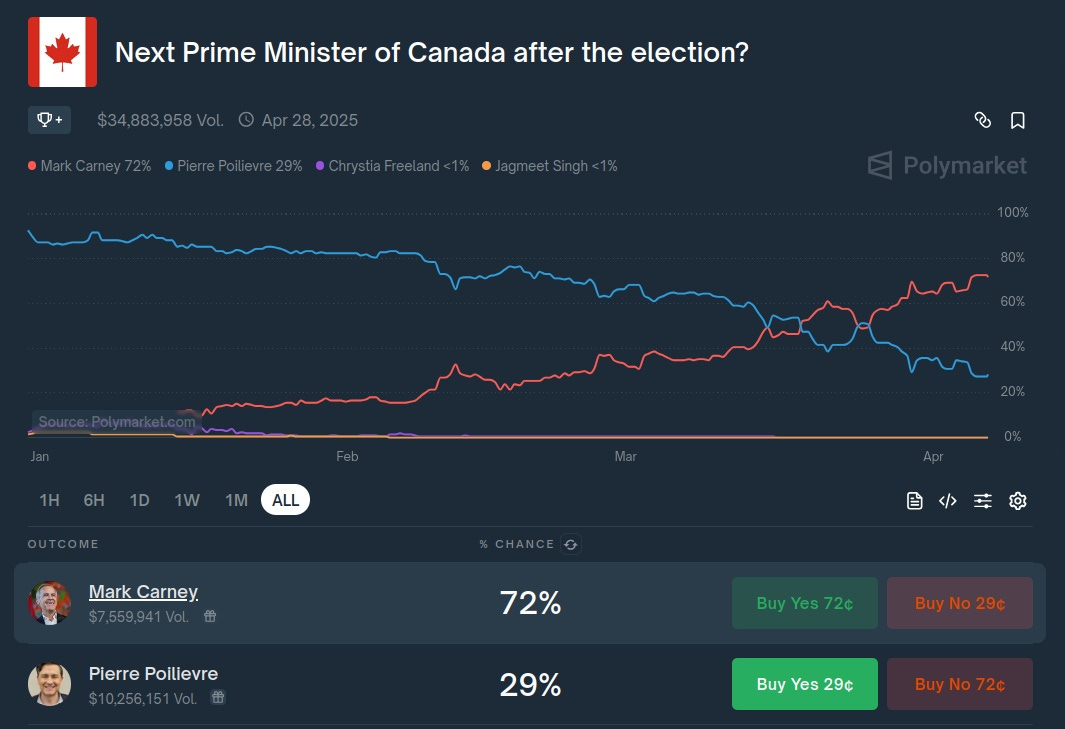




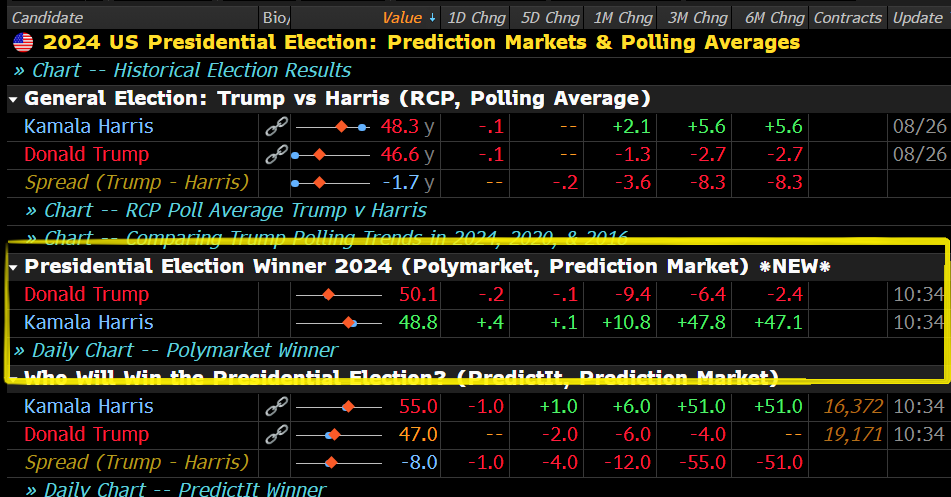
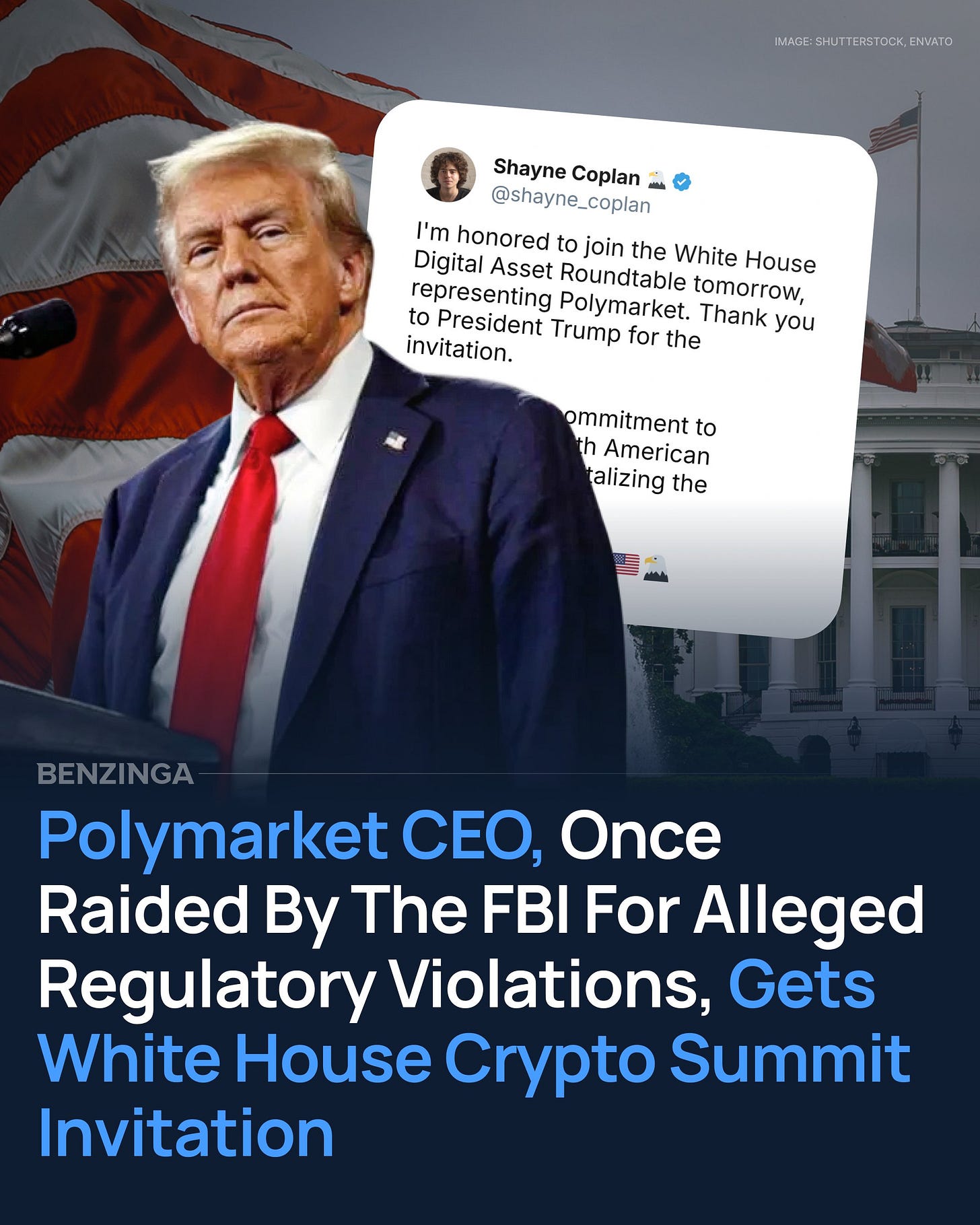
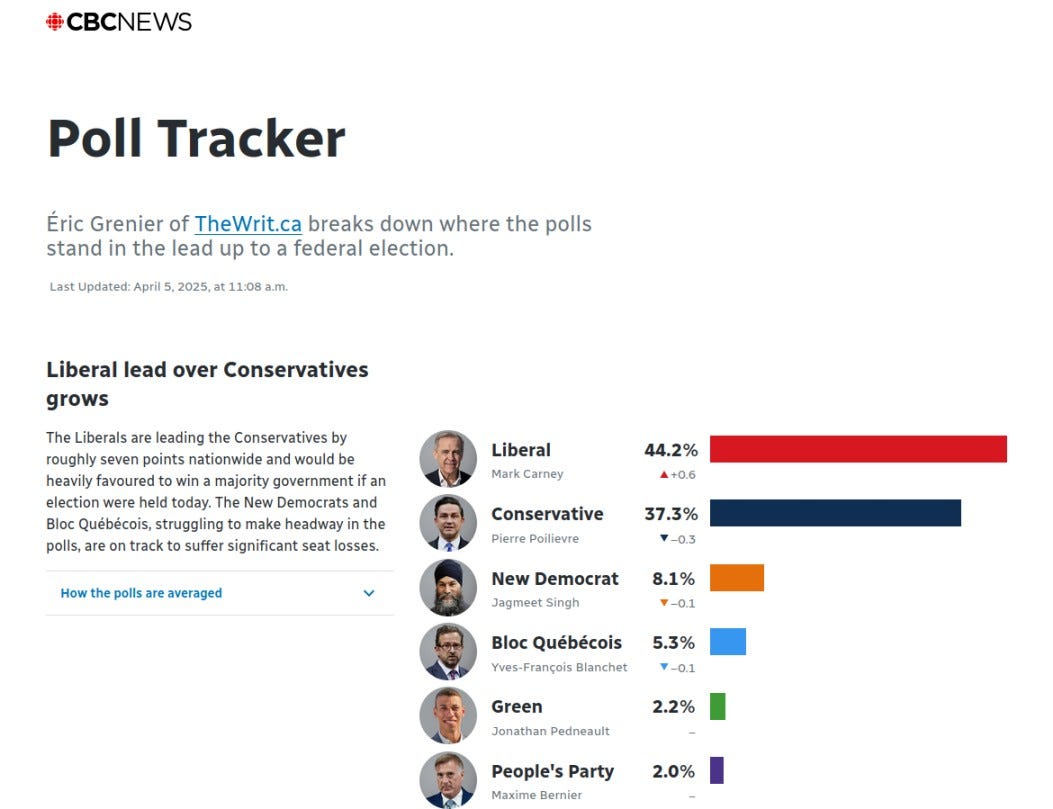

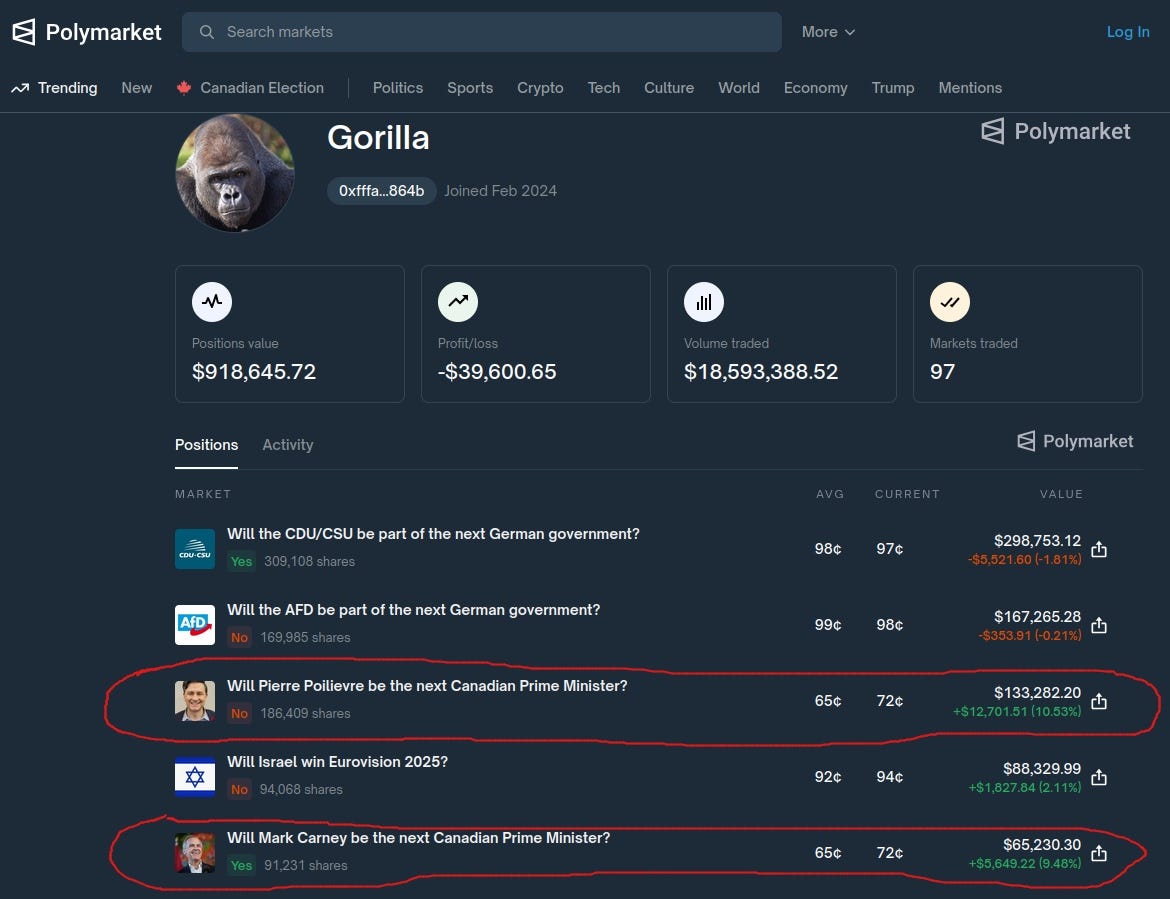


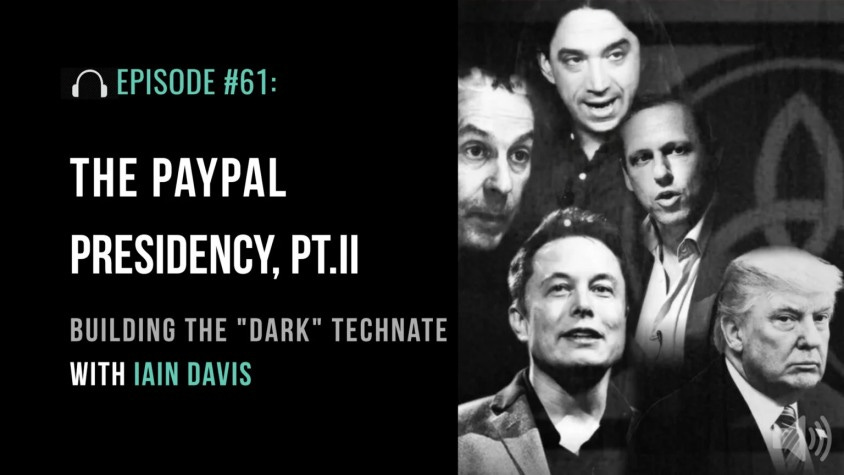






Any country that relies on electronic voting machines can plan on rigged elections. Period! No part of the election can be done over the internet…even reporting of election totals.
"Void of some kind of investigation by the Canadian Security Intelligence Service (CSIS) or a blockchain audit conducted by an independent and competent crypto firm with regard to this event, we are not likely to get a proper examination on the matter."
CSIS is a putrid sewer of corruption masquerading as national security. Much like the CIA, CSIS is an enforcement and punishment arm of the banking sector, multinational corporations and the military-industrial--pharma complex.
https://rumble.com/v6c6qzg-five-eyes-nato-and-the-ugly-truth-of-csis.html